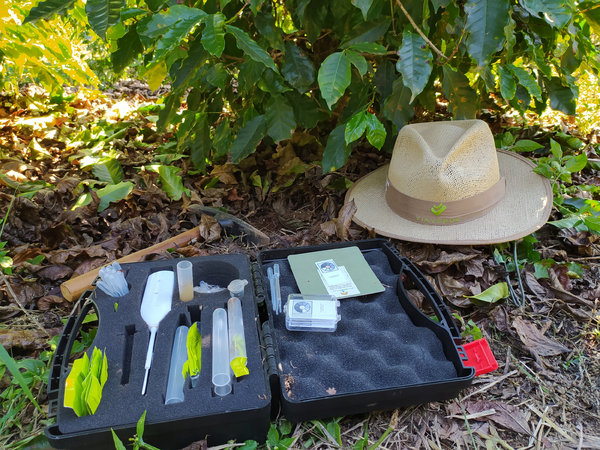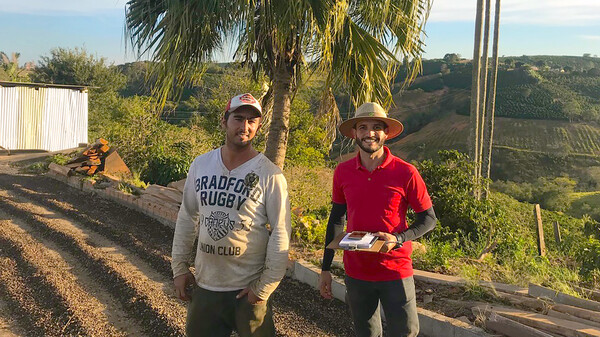Independent analyses and transparency are the foundation of our programs
We analyze the respective situation in our cultivation regions to identify the local-specific challenges and better understand the real problems of the farmers. We believe that we can only develop better and tailored programs through greater transparency about the actual situation on the ground.
For the analysis, we work with Enveritas. Enveritas was founded in 2016 and is a non-profit organization based in the USA. Their goal is to bring more transparency to the coffee sector in order to better protect the people and the environment on the ground. To achieve this, Enveritas uses satellite-based analyses and machine learning in combination with traditional farm surveys. This approach allows them to capture sustainability information for large parts of the global cultivation regions.


Approach to data collection
The basis for the analyses are representative samples from individual farms. Enveritas first identifies the number of coffee farms in a region by satellite and evaluates initial factors, e.g., the risk of deforestation. Subsequently, a randomly selected sample of farms is visited, where the further sustainability parameters are checked and digitally recorded. These are then collected centrally and evaluated to avoid errors by individual auditors. This procedure allows for a very high statistical accuracy of the results.
Independence of analyses and results
Due to its legal form, Enveritas is legally obliged to act for the public benefit. In their case, this means supporting coffee farmers, farm workers, and the environment. Furthermore, Enveritas is an independent organization that offers its information to the entire coffee sector and therefore is not particularly dependent on Tchibo. In addition, Enveritas merely records the situation on the ground, completely objectively, whether good or bad. Thus, Enveritas does not issue a certificate confirming that all farms meet a certain minimum standard. This means that, compared to certification, there is no incentive for Enveritas to make farmers perform better.

